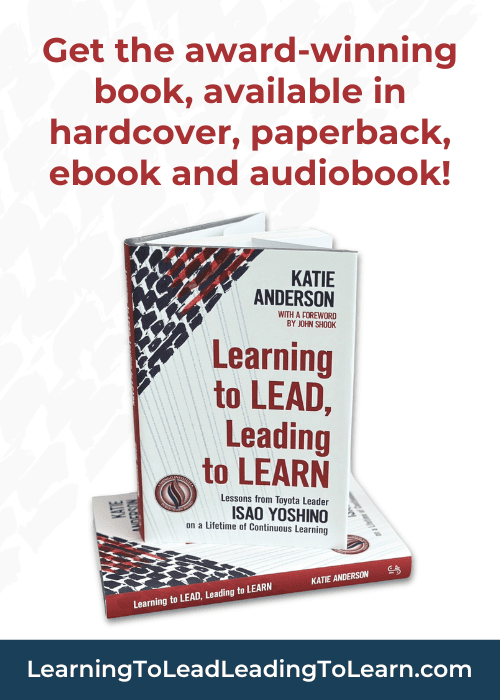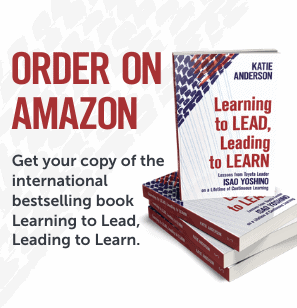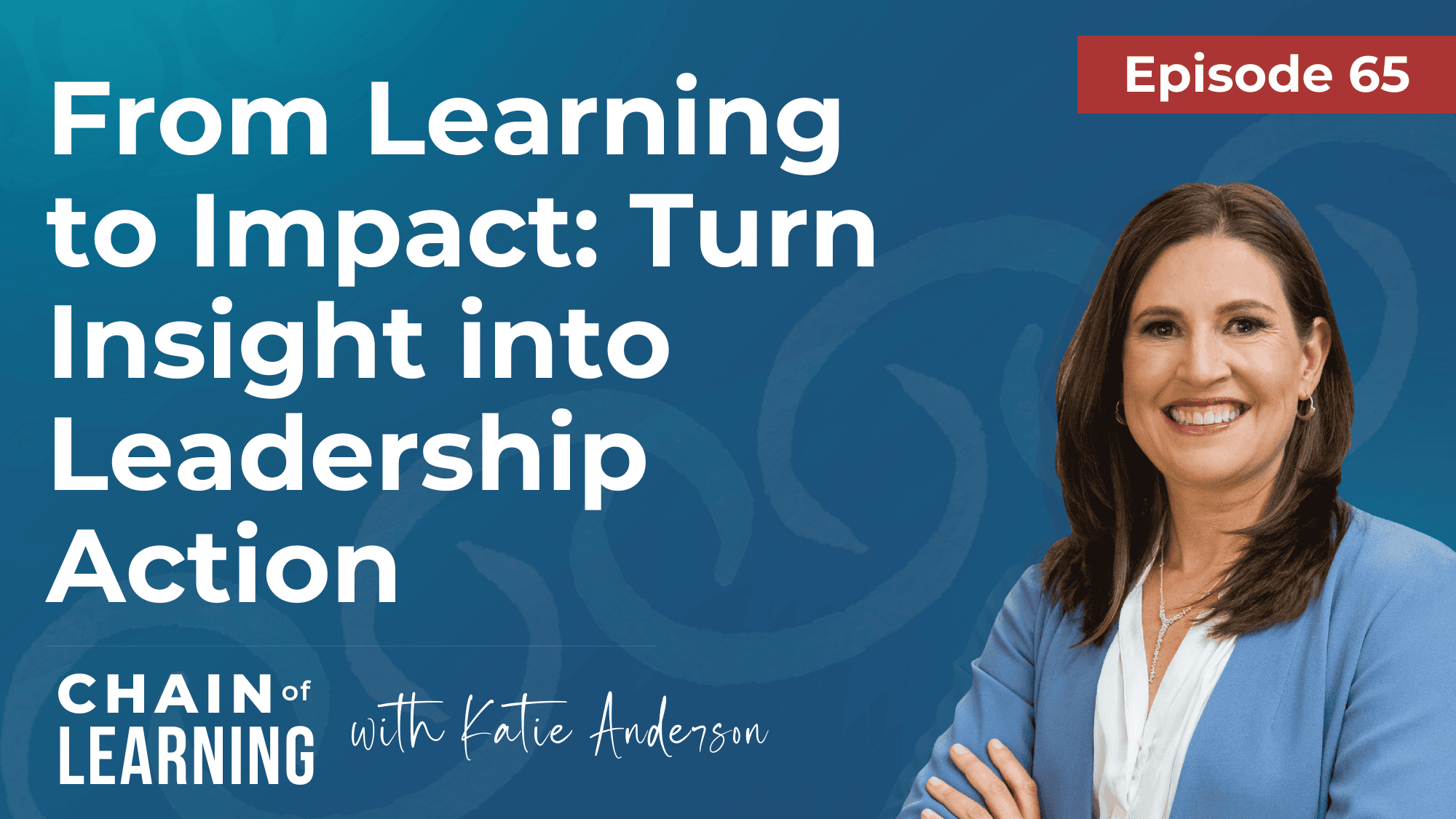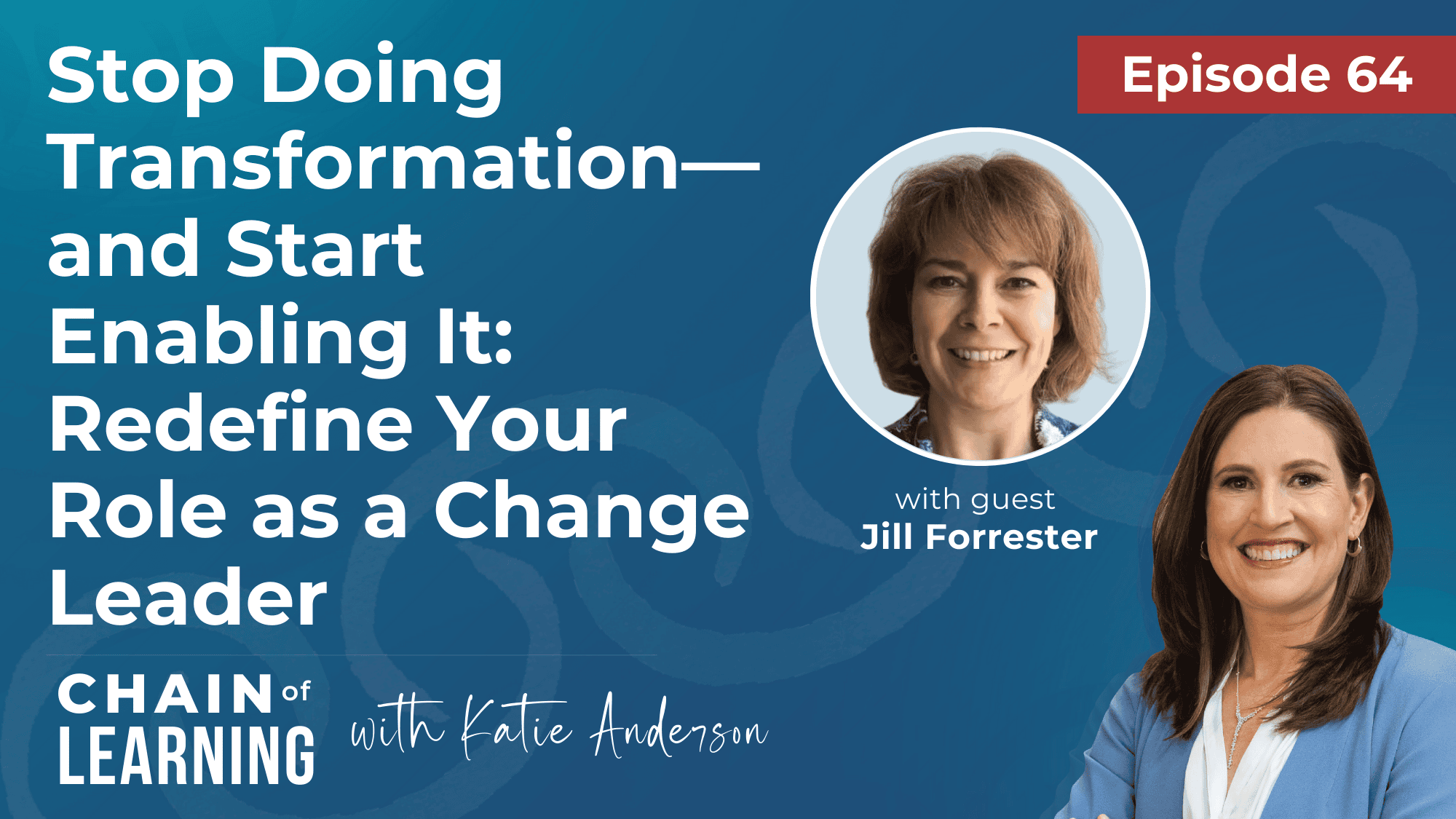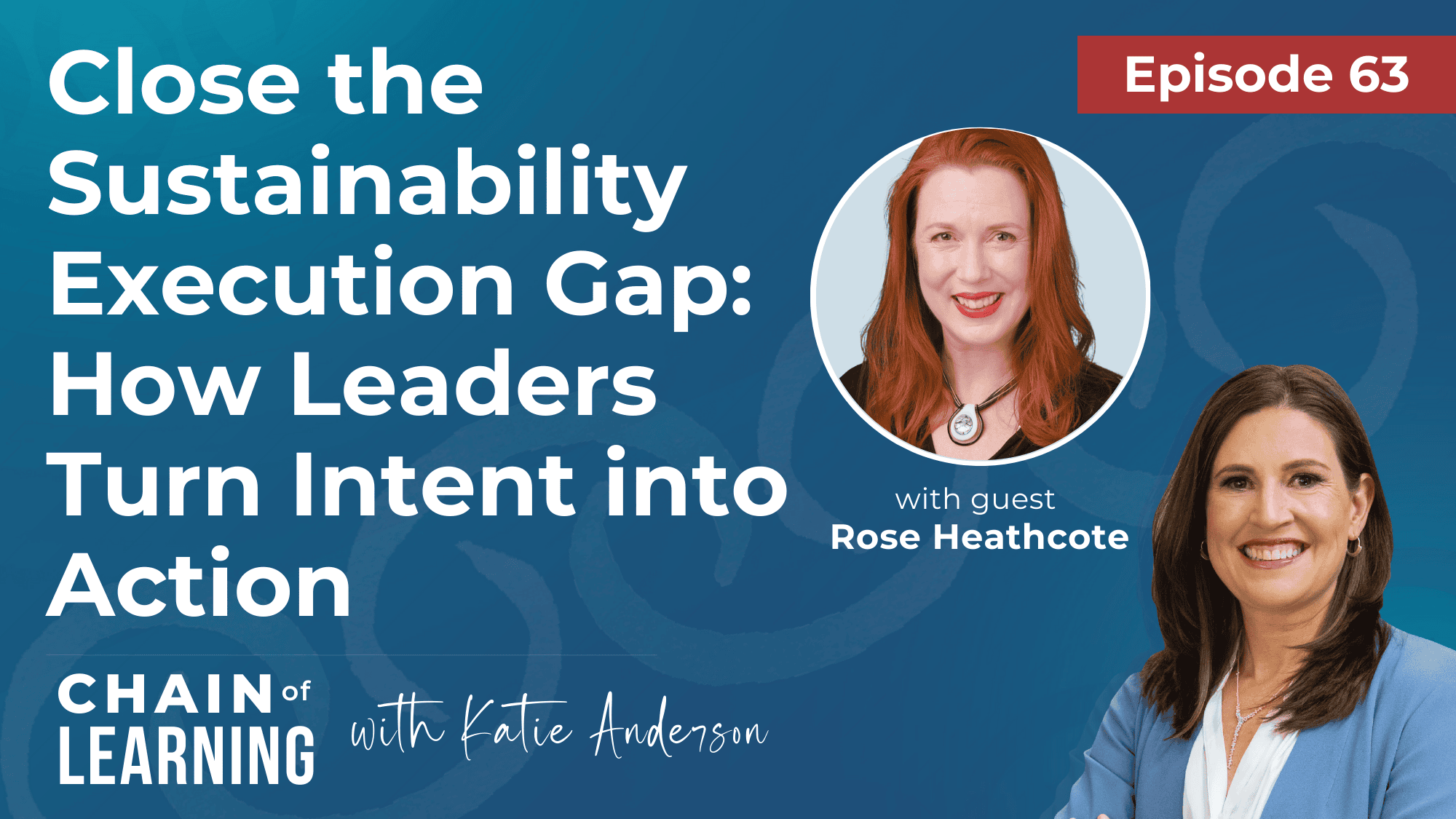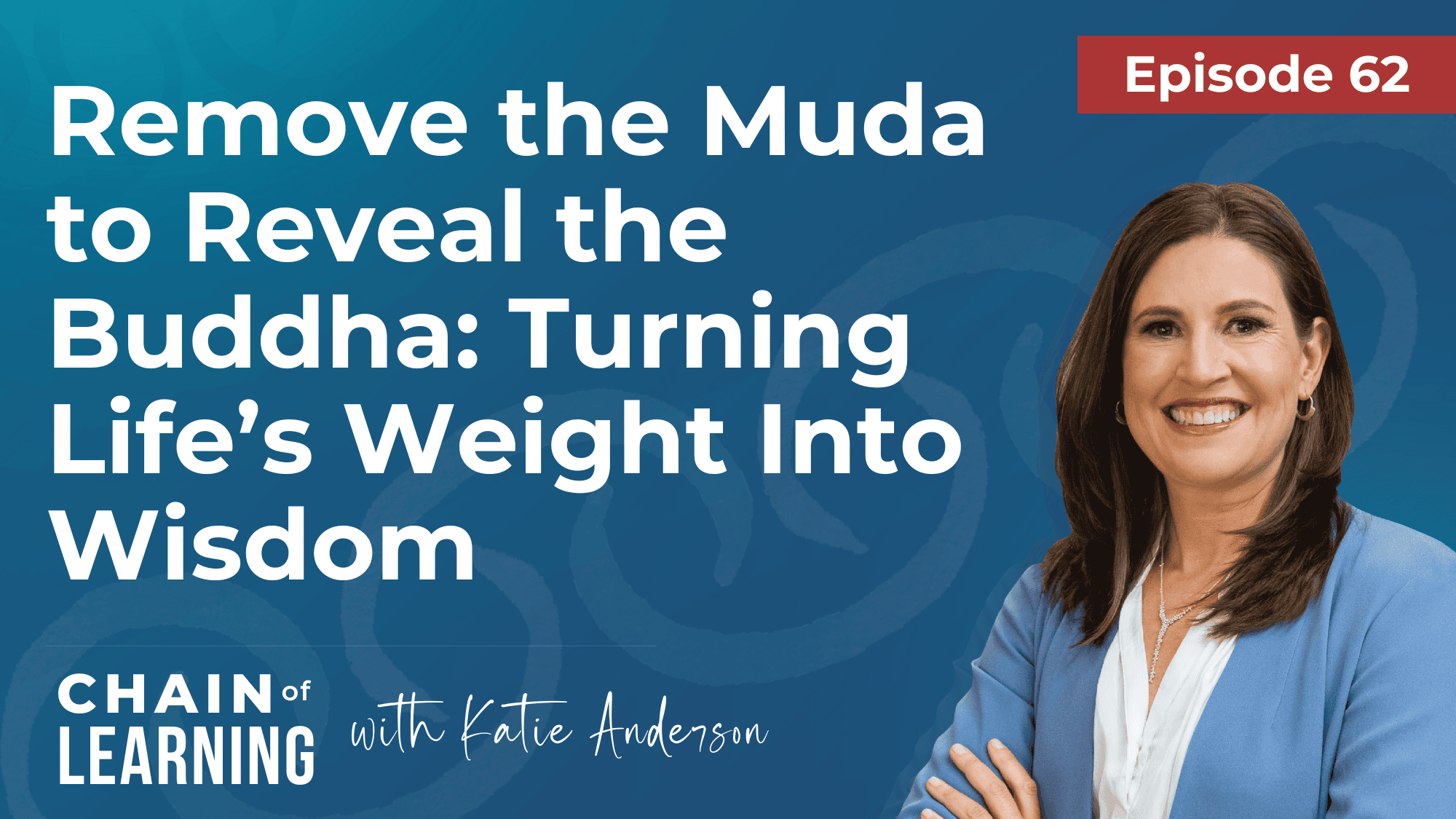What is your favorite mistake?
Ever since my friend Mark Graban first started his new podcast last year exploring this provocative question, I have been pondering what I would consider to be my favorite mistake.
I’ve made so many — some small, some big, some very personal, some shared — and all opportunities for learning.
But what was my favorite mistake?
I finally had to make a decision when, at the end of 2020, Mark invited Isao Yoshino and me on the My Favorite Mistake Podcast to talk about both of our favorite mistakes.
My Favorite Mistake Podcast with Isao Yoshino and Katie Anderson
Listen here to the podcast.
In this episode, Mr. Yoshino and I both share our own favorite mistake and talk with Mark about the importance of viewing mistakes and failure as a source of learning. And, as always on podcasts with Mark, we had a lot of fun – check out the photo below of us chatting!
Read on below to get more insights into our favorite mistakes and and an invitation to join me to accelerator your own intentional leadership journey.
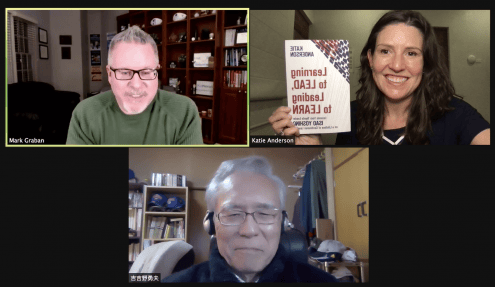
Reflect with the guidance of Mr. Yoshino and me — both your mistakes and successes
Mr. Yoshino and I were talking a few nights before writing this post about the logistics for a workshop we were recording on Introduction to Hoshin Kanri: Getting Started with Personal Hoshin (now available as a self-paced course!). In the course will be introduced to the process of hoshin kanri and get started on your own personal plan for the year. Use your reflections from the past year to determine your personal priorities, set a plan for how to achieve them, and develop a process for ongoing reflection and learning.
We were about how excited we are for the group who will be joining us! In the photo below, I am sharing the drawing I made of my reflections of of 2020 – this one highlights that gave me joy, including publishing our book and the connection of nature with my family.
Back to Mistakes & Learning From Failure
As Mr. Yoshino once told me, the only secret to Toyota is its attitude towards learning. Its success is driven by a culture that strives towards perfection but embrace failure as a source of learning. This is the foundation of continuous improvement, of Plan-Do-Check-Adjust!
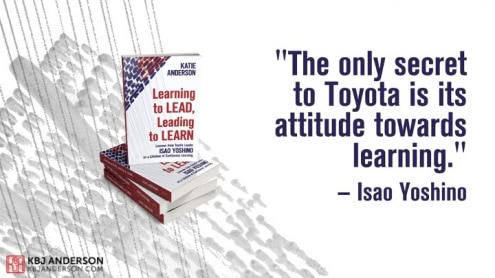
The theme of failure as a source of learning, rather than an outcome, features prominently throughout the book Learning to Lead, Leading to Learn.
Mr. Yoshino’s 40 year tenure at Toyota Motor Corporation was bookended by two serious mistakes — one as a new college graduate and the other as a senior executive towards the end of his career overseeing a multimillion dollar venture. In both cases, Toyota’s senior leaders had the a similar reaction to mistakes and failure: it is a source of learning.
Mr. Yoshino’s stories of his mistakes and his honest candor about failures made throughout his career is one of the most remarked about take-aways from the book. People — myself included — have been inspired by his humble reflection of the process of learning, and the insights into how Toyota collectively has developed a culture that embraces mistakes as a source of learning, necessary to innovation.
So what are our favorite mistakes?
Spoiler Alert! Don’t read on YET if you want to hear us tell our favorite mistakes on the podcast first!
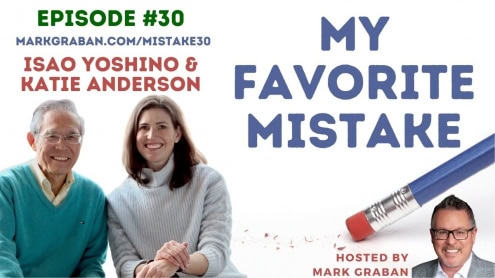
Remember to listen to the My Favorite Mistake Podcast!
And you may also be interested in an earlier podcast that I recorded with Mark Graban on his Lean Blog Podcast several months ago at the release of the book Learning to Lead, Leading to Learn.
Mr. Yoshino’s Favorite Mistake
I clearly remember the first time that Mr. Yoshino told me to the story of his favorite mistake. It was late at night a few years ago when we were just started the purposeful interviews for what is now the book Learning to Lead, Leading to Learn. I asked Mr. Yoshino to tell me about his early days at Toyota, and he recalled his decision to join Toyota following his university graduation and his multi-month orientation. And then he remembered what he said he hadn’t thought of in decades — his major mistake in the paint shop that required over 100 cars to have to be repainted.
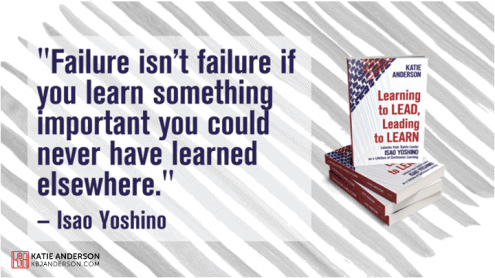
Listen to the podcast to hear him tell the story – and CLICK HERE to download a sample from the book in which this story appears.
I love the paint mistake for so many reasons, especially for the a sharp contrast the manager’s reaction is to what most of us would experience in our organizations.
Truly, the only secret to Toyota is its attitude towards learning — and respect for people as humans who inevitably will make mistakes. It is the organization’s and the leaders’ responsibility to create conditions for success and to support the learning process when it happens.
Keep learning!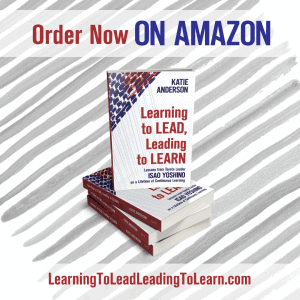
To dive into more stories about failure and mistakes from Learning to Lead, Leading to Learn, check out this post I wrote a few months ago: “It’s only a failure if you don’t learn”.
And if you are inspired by Mr. Yoshino’s stories, you can dive into his 40-years of learning and leading at Toyota in the bestselling book Learning to Lead, Leading to Learn!
Katie’s Favorite Mistake
I had a hard time coming up with one specific incident that was a mistake, as my favorite mistake is one that I’ve made over and over again. It’s my favorite mistake because recognizing and then learning from it — and purposefully working to improve — has been transformative in my life as a person, leader, coach, and parent.
My favorite mistake — and my subsequent journey to living and leading with greater intention — is one that has compelled me in the work I do as a coach and consultant — and drives my purpose of how to inspire and help others do the same.
So what was that “first” favorite mistake?
In looking back, there is one moment that stands out — which I share on the podcast — in which I started to realize there was a disconnect in who I wanted to be and how I was actually showing up. Now, the way my manager gave me the feedback wasn’t the most kindly delivered (and I’m not sure she would have said the same thing to a male colleague), there was some truth to the comment. I could get antsy and even aggressive with wanting to get *my* point across.
It gave me pause. Was this how I wanted to show up?
The beginning of a journey of leading with greater intention
This moment was my favorite mistake as it was the beginning of my journey of self awareness of how to live and lead with greater intention.
My favorite mistake was a realization that I was not fulfilling my intention of who I wanted to be.
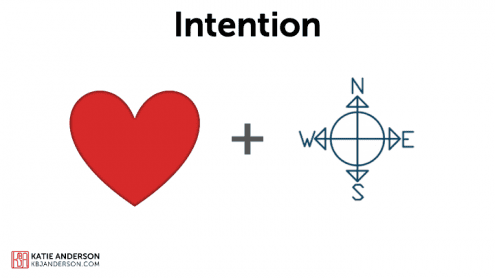
Learning to connect with purpose and align my actions
In the coming years as I grew in my career and level of responsibility, I became more aware that the actions that had led to my early career success — ones that enabled me to be what I now describe as an “expert problem-solver” — were often at odds with my role as a manager, leader, and coach.
Yet it was at this time that I realized how ingrained these habits were.
I started to notice that my desire to help others improve was often impeded by my instinctual habit to offer my opinion, provide my ideas, or give someone “the answer” (or what I thought was the answer). I discovered that these actions can be helpful when someone is learning something new or finding themselves stuck, yet when misapplied they can be unhelpful and actually limit learning. I knew that I needed to get out of the habit of telling!
In fact, I gave a 10 minute talk about my journey of getting out of the habit of telling a few years ago at the Lean Summit.
My Purpose as a Coach or Leader: Help Others Learn, Grow, and Successfully Solve Their Problems
As my awareness grew, I put great focus on improving myself. I wanted to develop habits that were aligned with my objective as a leader and coach — to help people learn, grow, and successfully solve their problems.
My purpose was not to be the best problem-solver in the organization, but rather to 1) provide the direction of what we needed to achieve and 2) support others to develop the capability and confidence to achieve these goals and create the structures that would enable their success. And 3) I needed to develop myself at the same time.
Interestingly, this is exactly what Mr. Yoshino framed as his role as a leader the very first time I heard him talk, and is now what I call the Leading to Lean framework: set direction, provide support, develop yourself.
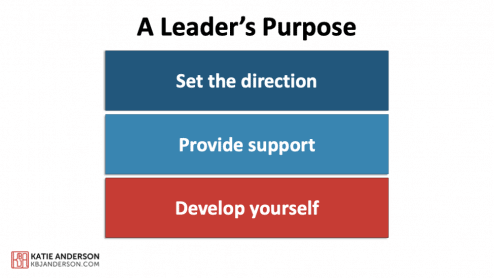
I put intention to my daily practice and began asking more open-ended questions, listening more patiently and openly, and taking what I now call an “intention pause” to connect with my purpose in each interaction. And, perhaps most importantly, I learned to navigate the coaching and leadership continuums of knowing when to ask and when to tell, how to challenge and nurture someone as they navigate the inherent struggles of learning, and how to develop people while achieving business results.
Understand your purpose and align your actions
And this is now the foundation of much of what I help others to become better at as well: To understand their purpose, how their actions align, and what adjustments they need to make to show up as the person they want to be.
And this is now the foundation of much of what I help others to become better at as well: To understand their purpose, how their actions align, and what adjustments they need to make to show up as the person they want to be.
I’d love to help support you on your journey to more intentional leadership too, so that you can become the leader you want and the coach your people need.
Accelerate Impact with Katie as Your Partner
If you want support for yourself or your team, work with improvement change leaders and executives like you to master these skills to lead change, step into your leadership impact, and create high-performing learning organizations.
You can learn more about my trusted advisor, team coaching, and leadership development programs here.



